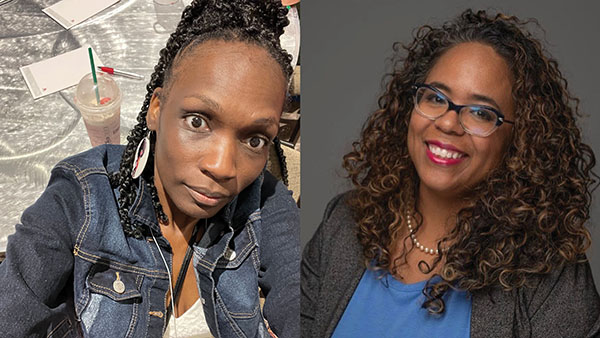Getting Research Right: Latest DDNJ Podcast
To those who do research, its benefits seem obvious: better data, more informed choices. But historically, research into marginalized communities could be stigmatizing, even harmful.
The latest DDNJ Podcast tackles the topic and offers a window into research done with sensitivity.
“It's important to acknowledge that, historically, institutions of higher ed and other research organizations have been about taking knowledge and using it to elevate privileged voices," said IDRPP executive director and podcast host Matthew Wappett. “And not giving back to their communities where that knowledge potentially came from.”

Dr. Wappett interviewed two DDNJ authors, including Ida Winters, a woman who has experienced barriers to services firsthand. She also shared her views on research on marginalized communities, and how it should be done.
“What is the value of research, not to just the researcher, but the one who you are trying to research?” Winters asked. She is the parent of an autistic child and a co-author of the article 'Paths to Equity: Parents in partnership with UCEDDs fostering Black family advocacy for children on the autism spectrum.'
“If you've done research on me, or you've done research with me, I still want to know what the results are. … I've signed up for something and at any point where it's not what I signed up for, I'd like to know.”
The article details work that was aimed at breaking the hurtful cycle. It examines two programs affiliated with university centers for excellence in developmental disabilities that supported advocacy and peer networking for Black families, and it includes first-hand accounts from participants and offers recommendations for providers.
“My youngest son is on the autism spectrum,” Winters said. “And a week before his 14th birthday is when he finally got a diagnosis of autism. I knew something was different with him. But I couldn't pinpoint what it was. And he got all different types of diagnoses, but not the right diagnosis. … And I just searched everywhere, turned over many rocks and nothing happened. And then I started working, I got the opportunity to work within the system. And once I started working within the system and learning about the system, I saw how many barriers were there for black families put up there and saw how easily services were obtained for other cultures versus for black families. …
“Starting off, there's a cultural barrier. Where I'm from, autism in a black child is almost unheard of. So that piece is there first. Traditionally in our mind is discipline: ‘Oh, they just need discipline,’ or, ‘They're spoiled.’ Or a lot of times when you take them to the doctor or something like that, [you hear,] ‘It's a boy, he'll grow out of it.’ Or, ‘He needs he just needs to be around his cousins a little more, he's not socialized or integrated into society.’
“…We didn't get evaluation, we just got an automatic diagnosis: ADHD, OCD, ODD, things like that. And here's some medication.”
What can improve the experience of families like hers? “For my son's school, I was there all the time, anyway,” she said. “So I would meet with parents who had concerns for their children's development … and I would suggest services and resources that they can use to help. But at the same time, I [talked] to the teachers and other staff members. … It's not just teaching the parents or the teachers just teaching the students. Staff need to be taught. The parents need to be taught, as well as the children because disability is something that everybody in the world is going to have to deal with. So everybody needs to be educated on it.”
“Black families have the answer,” said Dr. Elizabeth Morgan, another author on the paper from two California universities. “There's a great amount of resilience within the community. That, and navigational skills and advocacy skills that have been fostered throughout so many years. And so, black families have a wealth of information, a wealth of resources that really not appreciated in our systems.”
The DDNJ Podcast is on Apple Podcast, Spotify and PodBean. You can read the research paper on USU’s Digital Commons.

